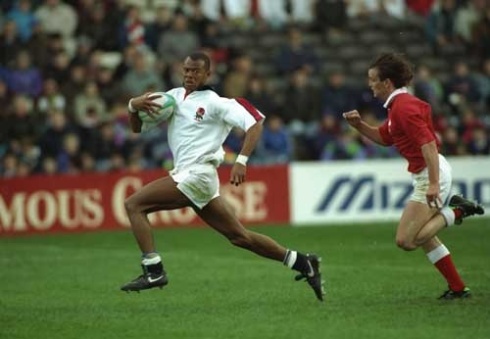With my first session as a player coach under my belt I felt compelled to write another blog. Tuesday heralded the dawn of a new era (in my mind anyway), following an off season of reading and planning my first session arrived. Despite a few hick ups I was relatively pleased with my first attempt and most importantly, I did things the way I wanted to do things. By this I mean I did things that some coaches/players may consider ‘outside the box’.
Through both my playing days and my day job as a PE teacher I have spent the last few years developing a rough vision of how I think amateur rugby players should train. Whilst I wouldn’t consider my ideas as revolutionary, I do believe my approach is one of a minority of coaches rather then the majority. As the season has approached and I have given my coaching more and more thought, and thanks to much reassurance by many enlightened coaches on twitter (@nlevett @uppy01 @RossRugby), a number of TED talks on youtube (John Wooden and Itay Talgam) and of course a few role models both past and present in the coaching world I now believe I have a firm picture of how I want to coach.
My Coaching Philosophy
One of the big questions I keep asking myself is how would I sum up my coaching philosophy? I’ve recently read 2 great blogs exploring football and coaching philosophies the first looks at the reasons why a coaching philosophy is important (http://riseofthecoach.wordpress.com/2013/05/14/coaching-philosophy/) and the second (http://www.sirc.ca/newsletters/mid-sept11/documents/free/philosophy.pdf) gives examples of high profile football coaches and their philosophies. The fact that both articles relate to football is in my opinion irrelevant and I think sports should not be afraid to share ideas, particular on something as generic as philosophy. Unfortunately my philosophy is quite as poetic as Trapattoni or Parreira’s, in fact I wouldn’t even say my philosophy is the finished article however I do think it’s a starting point and I’m sure (and I hope) it will evolve as develop and learn as a coach.
Coaching for me is about creating an environment where players aren’t scared of failing, to truly learn we must understand and one of the best ways to develop understanding is by making mistakes and learning how to rectify them. Coaching is about not just giving players the answers but igniting them to have a passion to find the answers. I firmly believe you coach the player not the game.
I can’t overstate the importance in my opinion of having a coaching philosophy. I firmly believe that purely through the process of thinking about my own coaching philosophy, I now have a lot clearer base from which to plan. I also hope by having a clear philosophy the players will have a level of consistency and through sharing my values, they will hopefully buy in and more importantly understand what I am trying to do.
So what was my revolutionary session?
Warm up – rugby netball, first as a big group whilst rules were learnt and then as the numbers grew two games of 7 vs 7.
Some dynamic stretching (no static stretching)
Offside rugby big pitch (lots of running) game limited to 7 minutes.
Defensive practice – mini completions in lines focusing on players discovering how fast slow they can go, who needs to line up where etc. lots of Q&A. I interspersed this with some fun wrestling tournaments.
Back into offside touch, smaller pitch with scoring team always keeping the ball (max 8 minutes). It took a long time for the teams to realise that 30 seconds of cohesive hard work in defence could possible lead to attacking (always seems easier!).
I then went back to the defensive games and asked what the offside touch had taught us about defence(work hard and together and reap the rewards)
Finally conditioned touch rugby, 2 games 7 vs 7. We started with if the defender can catch the attack behind the gain line it was a turnover, this became too easy so we introduced the 2 defenders had to lay down next to the breakdown area to create more space for the attack and to work defence harder. The final evolution (after the players had recognised that too much line speed can lead to players being to easy to step) saw any tries through the middle meant a forfeit for the defence. I must add I’m not a great advocate of punishing mistakes, but in this instance I felt it was a good deterrent and wouldn’t create an ethos of being afraid to try things.
The session did involve whole group coaching, but this was all done by guided discovery (that’s the teacher in me coming out) and through Q&A. I also focused on pulling players out of games for a minute or so and discussing their weaknesses/ focus for improvements.
